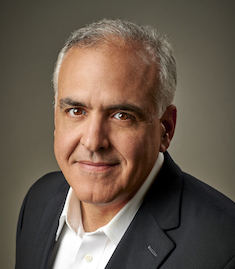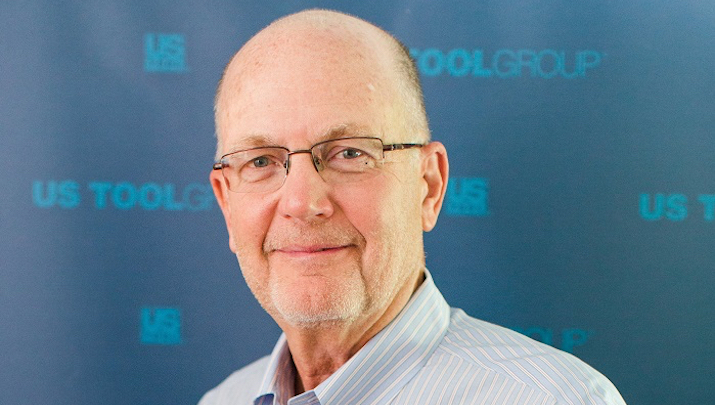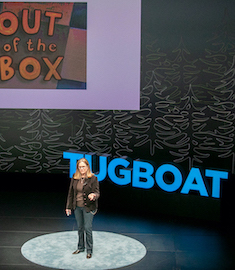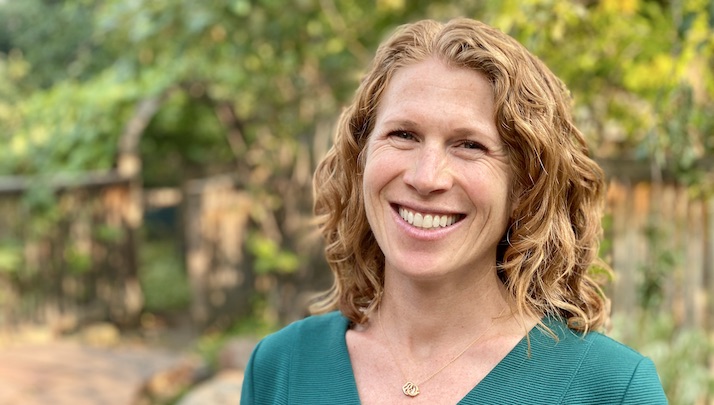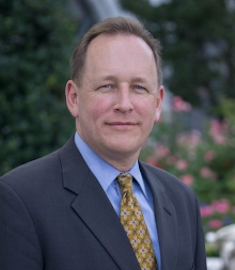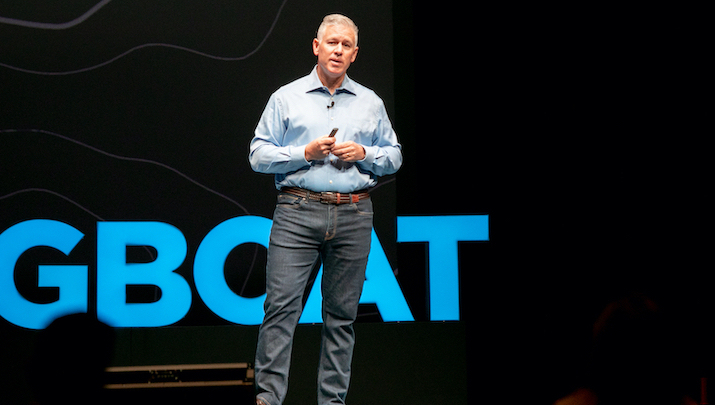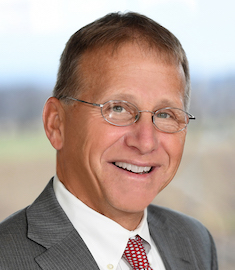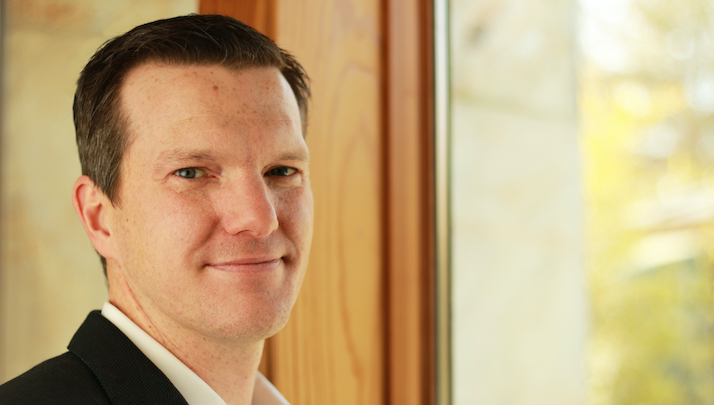How Our Team Met the Moment During COVID-19
If you were to call our Evergreen® company, Lightspeed Technologies, and ask the person who answered the phone, “Why do you work for Lightspeed?” My guess is that you’d be very likely to hear, “I really want to make a difference for teachers and students.”
Our Purpose, to “improve the lives of those we touch with our research, products, service and partnerships,” runs deep. We are passionate about serving students and teachers in the classroom setting through instructional audio systems that help project voices with the right volume and clarity so every child has the same access to learning.
About 75 percent of all learning, particularly in younger children, happens through auditory processing. Unfortunately, particularly among kindergarten through third graders, about 30 percent of students at any given time have some form of mild hearing loss. That means about a third of the students in those classrooms aren’t hearing the teacher properly, and in areas with high poverty rates and nutrition deficiencies, it’s even higher.
Our system provides for a very low-volume, highly intelligible, even distribution of sound throughout the entire classroom so every child can hear every word. Independent data we have evaluated shows that when you put these systems in the classrooms, students perform better.
While our Purpose has always guided our work, the power of our team’s shared commitment to that goal and our related core values became crystal clear as we faced the COVID-19 pandemic together.
In February 2020, as the COVID-19 pandemic emerged in the U.S. we started to get really concerned about the potential impact on our business. Our headquarters are in Oregon, and in March all non-essential businesses were mandated to close. We were able to maintain many of our functions, but orders just started disappearing.
We were getting emails from school district officials who told our salespeople, “Do not call us.” They were under siege, confronting huge problems, and they had no intention of talking to a salesperson. We had a lot of people just sitting by the phone. By mid-April we had to lay off 25 percent of our team.
It was quite a brutal hit. Our entire team was reeling as we processed the impact of the layoffs, the potential long-term impact on the business, and the effect of the situation in our personal lives. In the midst of this storm, our Purpose pulled us through.
When we started seeing schools struggle with conducting classes across a variety of in-person, hybrid, and remote models, we came together and asked, “How can we help?"
We knew how impactful our products could be in the classroom, but we also knew we needed to adapt to the new remote and hybrid learning environment with product innovations that would meet teachers’ and students’ needs. And, once we had created solutions, we needed to quickly reposition our messaging and our approach to share our products with schools.
Over a period of two months, we did both.
First, we examined how students and teachers were interacting and how their audio needs had evolved. We knew that in many cases, teachers who were in the classroom with students would need to wear masks, which would significantly impact the intelligibility of what they were saying. Kids in the classroom would be impacted, and it would be even worse for the kids joining remotely. Audio, it turned out, would be one of the major problems for online learning.
From there, we asked, Can we create a way for every child in the classroom to have a microphone? If so, this would enable full participation: Students at school would hear their teacher and one another clearly, and students at home would hear not only their teacher but each of their classmates. To meet that need, we created a product using existing technology we had designed for small group instruction and applied it to the broader classroom to provide each student with a microphone. We also ensured the technology could be connected to the wide variety of online learning applications, given the broad range of platforms in use by schools.
Having innovated technology to meet the need, our marketing communications team worked quickly to revise materials and inform educators about the audiology research behind our products and the impact of improving intelligibility—more important now than ever in the new learning landscape. But developing the new messaging was only part of the effort. We now had to make sure we could get the word out in a time when in-person visits and sales calls weren’t an option.
In response, we created a series of three webinars in which we hosted panels of superintendents and audiologists who shared challenges and barriers to learning in the new classroom environment and whose insights illustrated the benefit a product like ours. Like so many businesses adapting to this new marketing strategy, we initially didn’t know what kind of response we would get. The result? Generally, our webinars generate around 200-250 registrations. In this case, across three webinars, we had over 5,000 registrations. We had eyeballs and focus on a level we had never had before.
These Pragmatic Innovations across our services, product, and marketing communications teams were driven by our shared Purpose and our core values of innovation and collaboration. Working almost entirely remotely, we came together very quickly to adapt and serve teachers and students when they needed it most.
The effort and innovation that led us to develop and market new products in the wake of the pandemic reflect our team’s Purpose. Collectively, we want to make a difference in the lives of teachers and students. That shared goal led to record sales in 2020. And yet, our pride in this success is tempered by both the sadness we feel at the circumstances that have led to the need for our product and the layoffs and personal challenges we have experienced as a company and individually in the wake of the pandemic.
As we look forward, we’re thinking a lot about how to take the lessons and innovations of this experience and apply them for the long-term success of our Evergreen company. We know we need to make the most of the brand equity we have built over this time and continue to innovate for teachers and students.
One experience among our team during this time makes me confident that we’re up for the challenge, unified in our commitment to drive forward together. In the wake of the necessary layoffs during the early days of the pandemic, we read Simon Sinek’s The Infinite Game as a team. The meetings we had to discuss the book created a new sense of solidarity that I believe will stand the test of time. Throughout the company, people were inspired by the idea of building a 100 year + company. As a leader, that was music to my ears. While leadership can be isolating, especially in such turbulent times, knowing you’re surrounded by a team equally committed to your Purpose, core values, and sharing a long-term view, is incredibly inspiring.
David Solomon is President and CEO of Lightspeed Technologies.
How I Transformed My Company by Transforming Myself
Bruce Williams, CEO of US Tool, learned a tough lesson fairly early in his career as second-generation leader of the family-owned specialty manufacturing firm. In this talk from Tugboat Institute Summit 2020, Bruce shares the difficult conversation that served as a catalyst for personal and professional growth and the parallel, positive trajectory of the business over many years that was the result.
Virtual Gathering, Real Learning and Connection
In the last 12 months, we have all had to redefine what it means to “gather.” Among families, friends, and professional circles, the reality of this pandemic year has led us to adapt and innovate new experiences and opportunities to connect.
The value of making an effort to come together in spite of continued barriers to in-person experiences was clear last week as Evergreen® leaders and executive teams connected virtually for the second annual Tugboat Institute Gathering of Teams. The fresh perspective, affirmation of shared values, and energy generated from time spent in community with like-minded peers made for an impactful event.
The experience launched on Tuesday, February 2, when 275 members, executives, and family members from 57 companies across 17 industries around the U.S., the UK, and Canada logged on and settled in to listen, learn, and engage. Over three half-days of programming, attendees viewed live and pre-recorded TED-style talks, participated in breakout sessions and speaker dialogues, and gathered in functional role groups to work through challenges and opportunities and explore best practices.
On the first day, attendees heard from four Evergreen CEOs who shared personal experiences and key learnings on the following topics: allowing talented, less-experienced team members to lead opportunistic innovation during stressful periods; redefining customer service excellence; becoming an effective manager and leader; and, making decisions and moving forward together without a playbook in times of uncertainty.
In the final presentation of the day, former Herman Miller executive and Hope College management professor Vicki TenHaken spoke on the topic of business longevity, sharing highlights of her research into companies that endure beyond 100 years.
The second day of the experience was devoted to virtual functional role workshops, during which attendees gathered with Evergreen peers to discuss central themes with their entire group. Later, each group broke into smaller, more intimate breakouts, allowing each participant to share a key issue or opportunity and to learn from their peers’ experiences and wisdom on that topic.
Innovation was a clear through line in several of the presentations on day three, when attendees gathered for a second series of five TED-style talks. One Evergreen CEO described practices developed in his 135-year-old company to foster continuous improvement and prioritize diversity of thought, including intentional efforts to attract team members with varied professional backgrounds. Another CEO shared the primacy of deep work at her 20-year-old, fully-remote firm and the People First operations that have been developed in support—including a four-day work week.
Michael Horn, Co-founder of the Clayton Christensen Institute for Disruptive Innovation, offered a provocative idea in his talk: Silicon Valley is touted as the hub of innovation, with almost all its companies referring to themselves as “disruptive.” But Evergreen companies, operating with an “impatient for profit, patient for growth” mentality and generational planning horizons, are actually poised to be the engine for future “market-creating” disruptive innovations. Michael emphasized that while these innovations can take a long time to germinate from initial non-consumption to mass-market consumption, the benefit to society and these innovators is that these particular innovations lead to a far greater number of jobs than either of Clayton Christensen’s two other innovation types.
In the final two presentations, attendees gained insight into soon-to-be published research focused on the experiences and influences of the next generation of Evergreen employees—Gen Z—by Roberta Katz, JD, PhD, Senior Research Scholar, Center for Advanced Study in the Behavioral Sciences at Stanford University, and were offered insights into the successful storytelling process of respected script writer and film producer Allyn Stewart, Managing Partner of Flashlight Films.
Following final speaker dialogue sessions, attendees signed off the virtual experience, sharing messages of gratitude with their peers as they left the experience and promising to continue the conversation. As we head toward the hopeful possibility of in-person gatherings in the year ahead, we do so with gratitude for all we’ve learned about the ongoing commitment of Evergreen leaders and teams to overcome barriers to continue to listen, learn, and connect.
Diana Price is Senior Writer and Editor at Tugboat Institute.
Curiosity and 100% Responsibility
As an expert in small-group dynamics and leadership development, Kaley Klemp coaches leaders and organizations in communication and interaction skills to help develop trusting, effective teams. In this presentation from Tugboat Institute Summit 2020, Kaley describes the concept of being “above or below the line” in relationships and the three unproductive roles of the “drama triangle,” which can stifle clear communication, creativity, and problem solving. Kaley’s new book, The 80/80 Marriage, explores how these same dynamics show up in intimate relationships.
The First Rule of our Evergreen Business: “Do the Right Thing”
In 1946, Kenneth Savage returned home to Utah from serving in World War II and purchased a KB-5 International stake body truck, the first investment in C.A. Savage & Son. Together with his brothers, Neal and Luke, who joined the company shortly after its founding, Kenneth would drive 75 miles outside of Salt Lake, load the truck with seven tons of coal—by hand—and drive it back to Salt Lake City, where the brothers would deliver the critical fuel to their Customers’ stores and homes.
From that humble beginning, the Savage Family of Companies, which provides service offerings for truck, rail, and marine transportation and logistics, materials handling, and other industrial services, has grown to employ 5,000 Team Members across 220 locations around the world. The driving factor in the success of our Evergreen® company’s Paced Growth for over 70 years has been a deep, abiding commitment, first by the Savage brothers, and now by those of us who are stewards of the business, to their founding principles.
In 1999, Kenneth, Neal, and Luke, drafted a Vision & Legacy document, which serves as our cultural constitution. It lays out the Founders’ expectations regarding how we act with one another and with our stakeholders, and it serves as the bedrock of the Company. As many times as our mission and our strategic direction might change, the Vision & Legacy remains immovable. We lead according to that legacy, and we’re all expected to live it.
The document outlines the Founders’ vision for continued growth through future generations, their sense of stewardship, their commitment to integrity, their desire for Team Members to find fulfillment in their work, and their relentless commitment to continuous improvement. The language is rich and expressive, reflecting the passion and perseverance that formed our Company and how it continues to thrive to this day.
As leaders of the Company today, we recognize that if we want all of our Team Members, across job functions and geographies, to live and lead according to the Vision & Legacy, we need to ensure that the principles and values continue to resonate and are accessible and easy to understand. So, we've spent some time distilling it down to three actionable, clear principles: First, “Do the right thing;” second, “Find a better way;” and, third, “Make a difference.”
The power of presenting the Vision & Legacy in this way is that those three phrases actually also connect to the personalities of our three Founders. “Do the right thing,” very much reflects Kenneth Savage, the oldest brother. His handshake was a contract. Anybody who knew him, knew that if he gave you his word, it was the law. “Find a better way” is Neil, the middle brother, who simply expected that he, and everyone he worked with, would never get comfortable with the way things have been done, and “Make a difference” was Luke, who was always pushing for meaningful value for Customers. Making those personal connections brings the Vision & Legacy to life for our Team Members.
Also significant, especially from the Evergreen perspective, is that the Vision & Legacy reflects the fact that the Founders didn’t just want to preserve what they’d grown; they wanted to perpetuate it. They wanted the Company to continue to grow and thrive for generations to come. That's really the elegance of what they expressed—the desire for continual improvement and for Team Members to continue to embody these principles through that ongoing evolution.
Specific parts of the Vision & Legacy are demonstrated by Team Members every day. Our culture is a reflection of how the document has been operationalized and is continually reinforced. Recently, I met with executives from a large oil and gas corporation that we’re working with on a large project. When I asked their team about any concerns or issues they may have about the project, they said, “We love your culture so much, and our only concern is that we want to make sure that any new people you bring into the project are properly assimilated – we want to make sure they’ve been ‘Savage-ized’." They clearly understood the power of the culture as a driver of our team and the success of the project.
The directive to “make a difference” is also clear and present today through our philanthropic efforts. We involve Team Members in service projects because we understand that we have an obligation to give back and to be stewards not only of our company but of the communities where we work and live.
We also try to create fulfilling work and provide opportunities for Team Members, as our Founders articulated in the Vision & Legacy when they committed to help people “do things that they never dreamed possible.” For that to happen, we have to be seriously interested in finding out for each Team Member, "What do you aspire to do?" Then, whether the answer is to be the best driver in our Company or to be a CFO, we have an obligation to help each person understand the steps that will get them there and then help them chart a course to operationalize this unique part of the Vision & Legacy.
To see the impact of our commitment to Team Members’ growth and development is incredibly fulfilling. We make a point, when we discuss the Vision & Legacy at company events, to ask, "Are you doing something today that you never dreamed possible?" To see the number of hands that shoot up is amazing. And while it’s exciting for me to see, I think it’s even more powerful for more recently hired Team Members who might be wondering whether the principles of the Vision & Legacy are the “real deal.” When they see these other Team Members’ hands go up—a mechanic who’s now a Business Unit Leader or a woman who began in an entry-level role who now leads our IT organization — they see real, live examples of how we live these principles.
There’s no question that there’s challenge in maintaining the power of the Vision & Legacy as we grow. But that document will remain the foundation, our cultural constitution, because it’s so important to us, and people “get” the value of it. We teach it all the time. We reinforce it all the time. We showcase it all the time. We use it when we talk to Customers. We use it when we talk to current Team Members and to future Team Members. We use it when we do exit interviews because we want to make sure we haven't damaged it. It’s embedded, and that’s how it will live on. Our Vision & Legacy is a living, breathing part of our Company, and to keep it alive, we’ll need to continue to nourish it as it sustains our Evergreen Company.
Kirk Aubry is President and CEO of Savage.
Leadership Lessons
Allen Serfas founded and leads Assistance Home Care in St. Louis, Missouri, a business he and his wife were inspired to launch after helping to care for his father in law at home over many years. Allen’s personal experience and his unique home care business model reflects an innovative and Purpose-driven approach, informed by a 20+year career in a completely different industry.
The Most Successful, Yet Little Known, Recycling Program Since the 1950s Has Evergreen Roots
Sustainability has been the driving force behind our Evergreen® company, East Penn Manufacturing, since DeLight Breidegam, Jr. and his father, DeLight Sr., founded the company in 1946.
When DeLight Jr. returned home to rural Pennsylvania after serving in the Air Force in WWII, he and his father noticed the shortage of materials available to manufacture batteries and began collecting and rebuilding old batteries to meet the post-war demand. For DeLight Jr., who was raised during the depression, recycling in this way was common sense.
That sense of pragmatism and what he would have called “common sense” forged the foundation of many of the practices that DeLight Jr. went on to implement as he grew the company to become a global leader in battery manufacturing. He always had a long-term view, and, for him, that meant building a company that would look after the environment, employees’ well-being, and the community.
I was lucky enough to work with DeLight Jr. when he was still actively leading the company, and he used to say to me, “Pruitt, they’re not making any more land, so we’ve got to take care of it.” That pragmatic expression of environmental stewardship is at the core of East Penn’s steadfast commitment to sustainable practices, and it propels our recycling efforts, which are a pillar of our environmental protection plan.
When people hear about the scale of our recycling programs, they’re often surprised. We manufacture lead batteries—the type in most cars, trucks, and other vehicles today—and many people aren’t aware that 99 percent of lead batteries in the United States are recycled. (In comparison, only 40 percent of aluminum cans are recycled.) This is perhaps the biggest recycling success story that never makes the headlines.
At East Penn, following DeLight Jr.’s early lead, we’ve been recycling since the 1950s, when these practices were not as widespread, to say the least. Why? It comes back, again, to our founder’s common-sense approach to growing a company for the long term. It absolutely makes economic sense to create a sustainable product with a circular life cycle, but it also aligns with our commitment to environmental stewardship because if the batteries were not recycled over and over, they'd be considered hazardous waste.
Instead, we receive spent batteries back at our facility, where we process approximately 30,000 batteries per day, safely recycling all of the components—lead, plastic, and acid—and creating new batteries with about 80 percent recycled materials. We also recycle all of the corrugated cardboard and shrink-wrapping materials we use to package the batteries for distribution via an external recycling entity.
Our investment in the facilities and technology to recycle has been considerable over the years. We built our smelter in 1947 and the battery industry’s first acid reclamation plant in 1992. In 1996, we built a $14 million industrial wastewater treatment zero-discharge facility. We have seven or eight miles of pipe laid underground here at East Penn, and no wastewater leaves our premise. None. It's all processed, cleaned, and reused. The only water that leaves our premises is the sanitary waste, which goes to the local waste municipality. These long-term, common-sense investments keep the company sustainable and reduce our impact on the environment. We never second-guess those financial commitments.
Looking ahead, we continue to innovate in our environmental stewardship efforts. We use a great deal of energy charging the batteries we produce, so we just embarked on an Energy Efficiency Program to work toward reducing our energy use by more than 10 percent over the next ten years. It's a collaborative program with the federal government, and it’s one more way we are hoping to improve our impact.
Conclusion
All of the choices we’ve made over the years to limit our impact on the environment and create a truly sustainable product speak to our bigger commitment to building a long-term, sustainable business. But for us, sustainability means more than environmental stewardship. It means reinvestment back into the business. It means proper health and safety procedures to protect our employees. It means providing health insurance for our employees and their families. It means continual innovation. It means taking reasonable risks to grow the business. It means building a strong culture that upholds towards our employees, our customers, and our community.
All of these steps toward sustainability continue to reflect our founder’s common-sense approach. DeLight used to say to me all the time, “Pruitt, it's not one big thing. It's a million little things that make a business tick every day, and it's those million little things that are important because they add up to the big thing of sustainability. That's our why.”
Chris Pruitt is CEO and President of East Penn Manufacturing
Be Brave
Ingrid Carney, Founder and CEO of Ingrid & Isabel, a maternity essentials company, never considered bravery a defining characteristic of her life or her business journey. But now, as she shares in this talk from Tugboat Institute Summit 2020, 20 years after founding her Evergreen business as a new mother, Ingrid has a different view. As she reflects on the many small and big moments of motherhood and entrepreneurship that have led to success and personal growth, she is able to see the through line of bravery in her story and encourages other leaders to do the same.
Evergreen Perspective On 2020
Dear Evergreen Journal Readers,
The start of a new year traditionally offers both opportunity for reflection and anticipation, and—despite all the ways in which 2020 was unprecedented—this year is no different. At Tugboat Institute, as we look ahead to 2021, we’re ready to embrace the hope that the prospect of a COVID-19 vaccine brings and move forward to continue to support Evergreen® leaders, and we’re also incredibly grateful to reflect on the lessons and perspective of our community.
The experience of Tugboat Institute member-companies in 2020 has varied widely, reflecting the broad range of industries and geographies in our CEO tribe. In spite of the pandemic, some Evergreen businesses had an incredibly successful year; in other cases, leaders faced stunningly fast and steep revenue drops and heartbreaking layoffs in response.
Almost all members pushed through exhaustion and decision fatigue at some point, managing personal and family challenges at the same time. Across these experiences, the Evergreen 7Ps™ principles have continued to serve as a through line—guiding lights for Tugboat Institute members and companies. The myriad inspiring stories of perseverance, adaption, and care in this unprecedented year could fill a book, but there are a few that stand out as I reflect on our community.
Like so many Evergreen leaders, Scott Evans, CEO of Kenmore Envelope, saw the opportunity to make a difference and serve his community through the pandemic. Having been deemed an essential business as a result of the company’s relationship with the US Postal service, Kenmore continued to operate as many other businesses faced shutdown last spring. With a deep sense of responsibility to use the company’s capabilities and team for good, Scott determined the business could use existing equipment to produce PPE for frontline workers. In mid-April, Kenmore began distributing face shields to community hospitals and healthcare providers in the Richmond, Virginia area. Kenmore is one company among many Evergreen businesses that has displayed People First principles and a commitment to community in 2020.
The events industry has been among the hardest hit by the pandemic, with in-person gatherings almost completely shut down immediately last March. And yet, at Hello! Destination Management President Paul Mears saw opportunity to adapt and step into a new arena in this time. For several years, Paul had been tracking a struggling company with significant outside funding, which, in his view, had developed a wonderful capability that was mispositioned in the market. As COVID-19 shut down his core business, he quietly did his homework by testing a different value proposition with his existing customers—and found significant interest. Based upon those insights, he acquired the company, extending Hello! DMC’s service offerings into the virtual and local domains and giving the team an exciting new growth vector.
Grossman Company Properties, a second-generation real estate investment and management company, with a primary focus on hospitality, owns and operates nine hotels. John Grossman, President of the Evergreen business, saw revenues in the hospitality drop by 85 percent across the board last spring, as the floor fell out of the industry in a matter of days. The company initiated furloughs as they saw occupancy rates fall across their properties, which was incredibly difficult given their commitment to People First. However, Private ownership and management allowed for flexibility and creativity in reorganizing staffing to manage the properties. In addition, as John shared in The Evergreen Experience 2020™, the company’s long-term, conservative approach to debt—another characteristic of Evergreen companies—was essential in weathering the storm.
Choosing just three examples here was not easy. So many Evergreen leaders have shown extraordinary grit, compassion, and character in 2020, continually making decisions to align their companies’ actions with their core values and to care for their teams while confronting extraordinary challenges.
Looking ahead, Evergreen businesses will need to continue to adapt and plan for what remains an uncertain future in many ways. But these leaders and their teams have a competitive advantage in this time: they are committed to delivering on their Purpose for the long term. With new innovations and stronger teams forged in this moment, I know these companies will continue to grow, thrive, and make a difference in the world.
Dave Whorton is the Founder and CEO of Tugboat Institute.
Transforming Luck Companies through Values, Leadership, and Process
Dr. Tom Epperson serves as President of InnerWill Leadership Institute, which works with companies to navigate challenge and achieve success through values-based leadership.
In this presentation from Tugboat Institute Summit 2020, Tom shares the origin story of InnerWill, offering insight into the transformation of the family-owned Luck Companies, and describes the process and impact of integrating and operationalizing values-based leadership.
